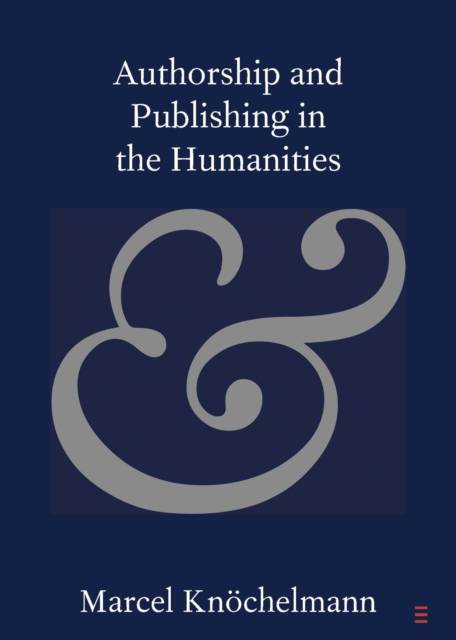
- Afhalen na 1 uur in een winkel met voorraad
- Gratis thuislevering in België vanaf € 30
- Ruim aanbod met 7 miljoen producten
- Afhalen na 1 uur in een winkel met voorraad
- Gratis thuislevering in België vanaf € 30
- Ruim aanbod met 7 miljoen producten
Zoeken
Omschrijving
What is the point of publishing in the humanities? This Element provides an answer to this question. It builds on a unique set of quantitative and qualitative data to understand why humanities scholars publish. It looks at both basic characteristics such as publication numbers, formats, and perceptions, and differences of national academic settings alongside the influences of the UK's Research Excellence Framework and the German Exzellenzinitiative. The data involve a survey of more than 1,000 humanities scholars and social scientists in the UK and Germany, allowing for a comprehensive comparative study, and a series of qualitative interviews. The resulting critique provides scholars and policy makers with an accessible and critical work about the particularities of authorship and publishing in the humanities. And it gives an account of the problems and struggles of humanities scholars in their pursuit of contributing to discourse, and to be recognised with their intellectual work.
Specificaties
Betrokkenen
- Auteur(s):
- Uitgeverij:
Inhoud
- Aantal bladzijden:
- 75
- Taal:
- Engels
- Reeks:
Eigenschappen
- Productcode (EAN):
- 9781009223096
- Verschijningsdatum:
- 3/08/2023
- Uitvoering:
- Paperback
- Formaat:
- Trade paperback (VS)
- Afmetingen:
- 127 mm x 178 mm
- Gewicht:
- 145 g

Alleen bij Standaard Boekhandel
+ 51 punten op je klantenkaart van Standaard Boekhandel
Beoordelingen
We publiceren alleen reviews die voldoen aan de voorwaarden voor reviews. Bekijk onze voorwaarden voor reviews.











